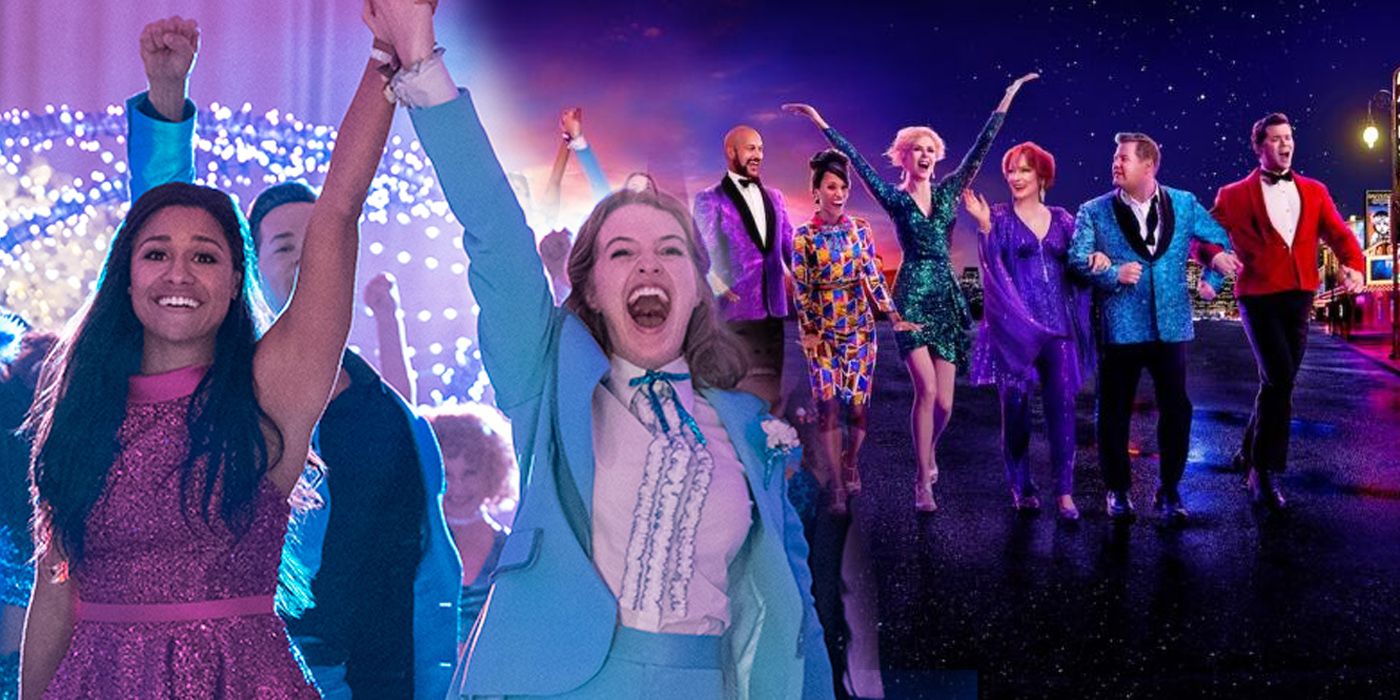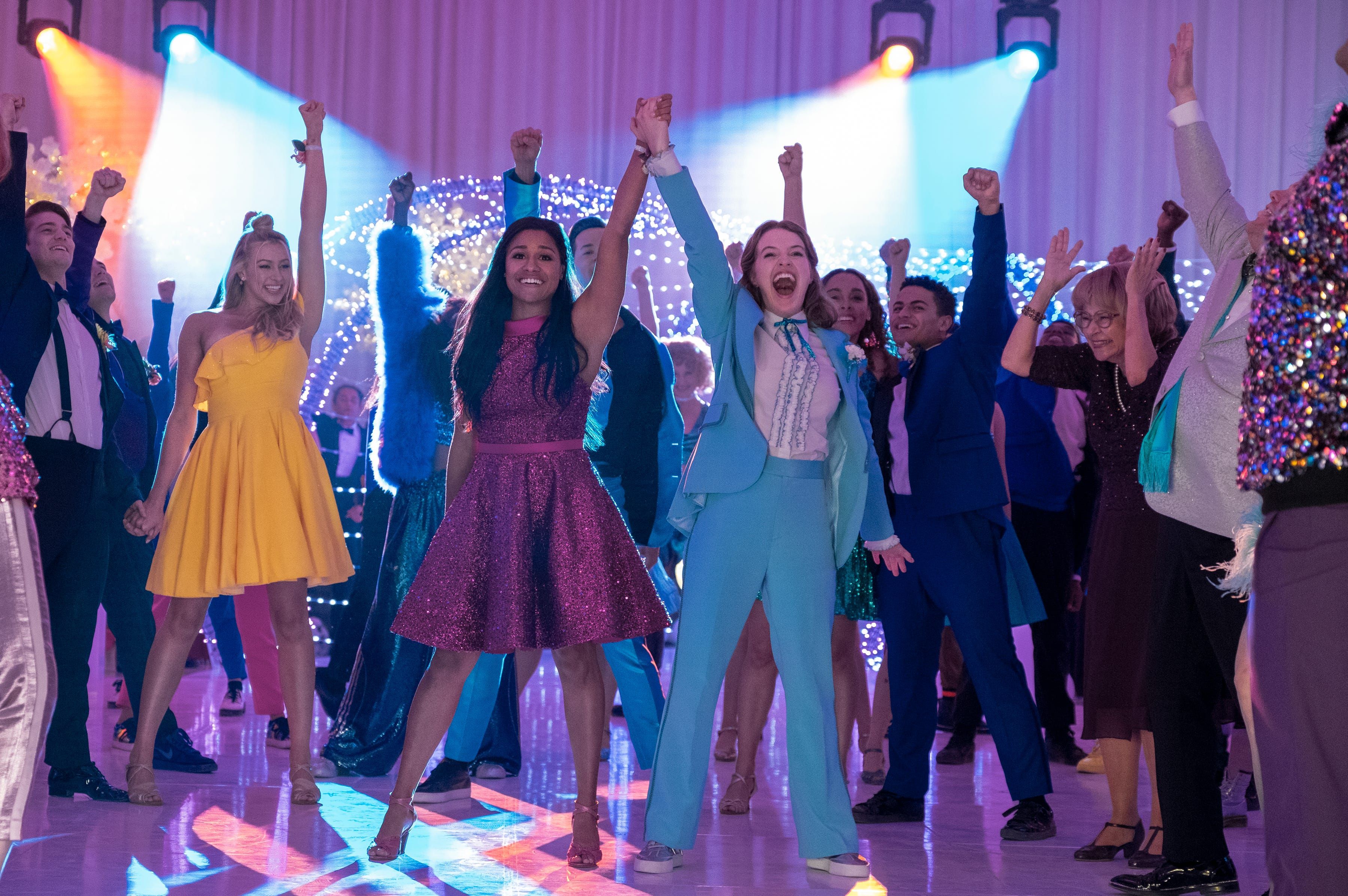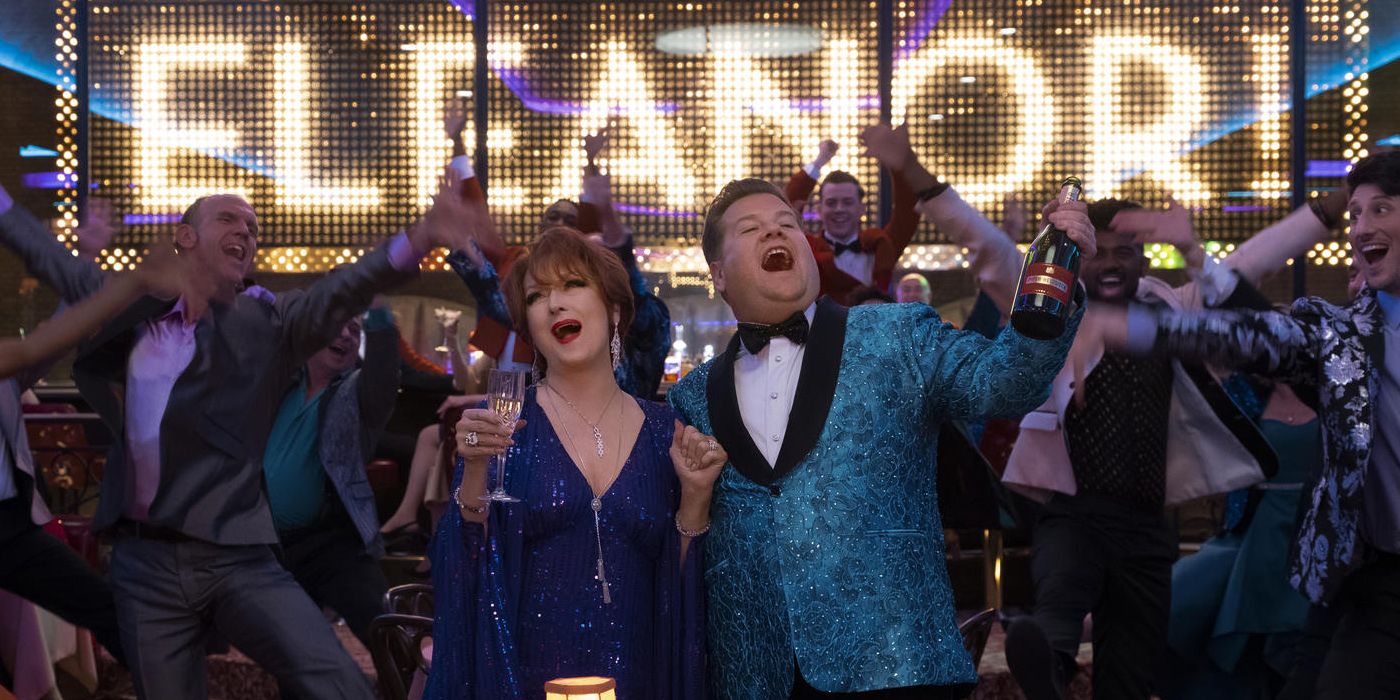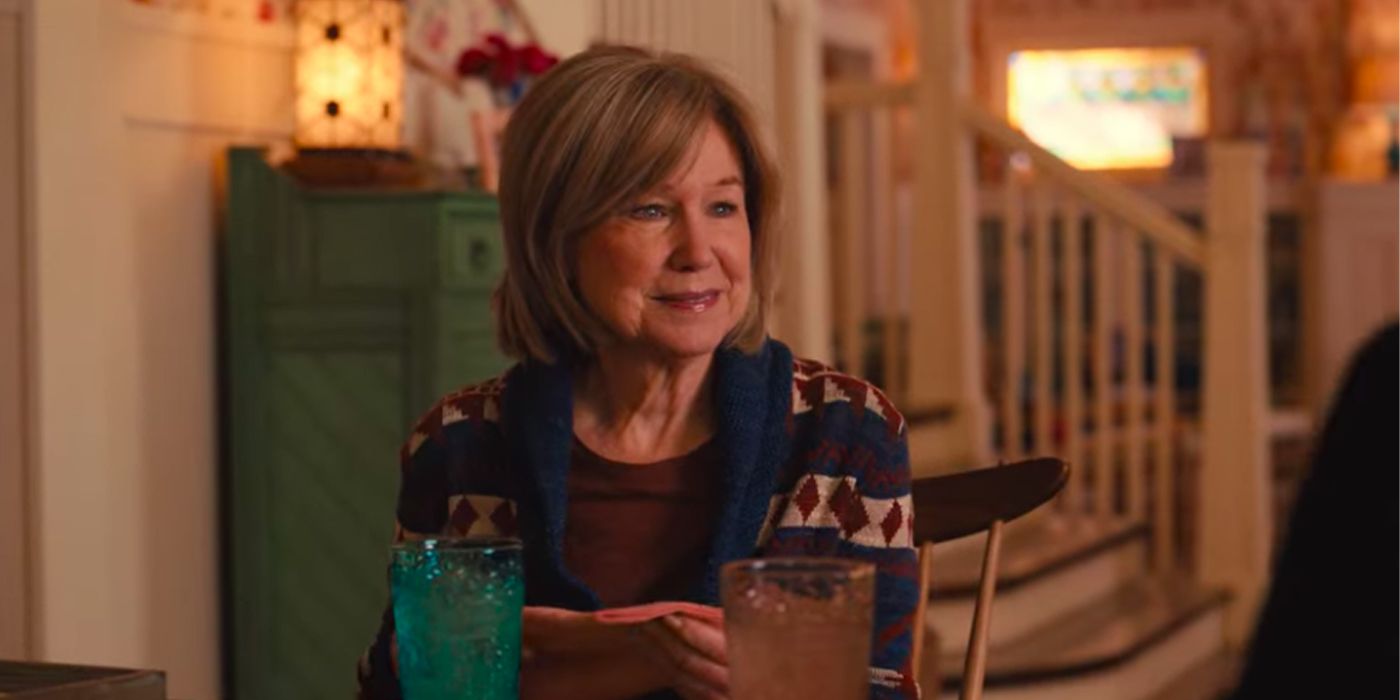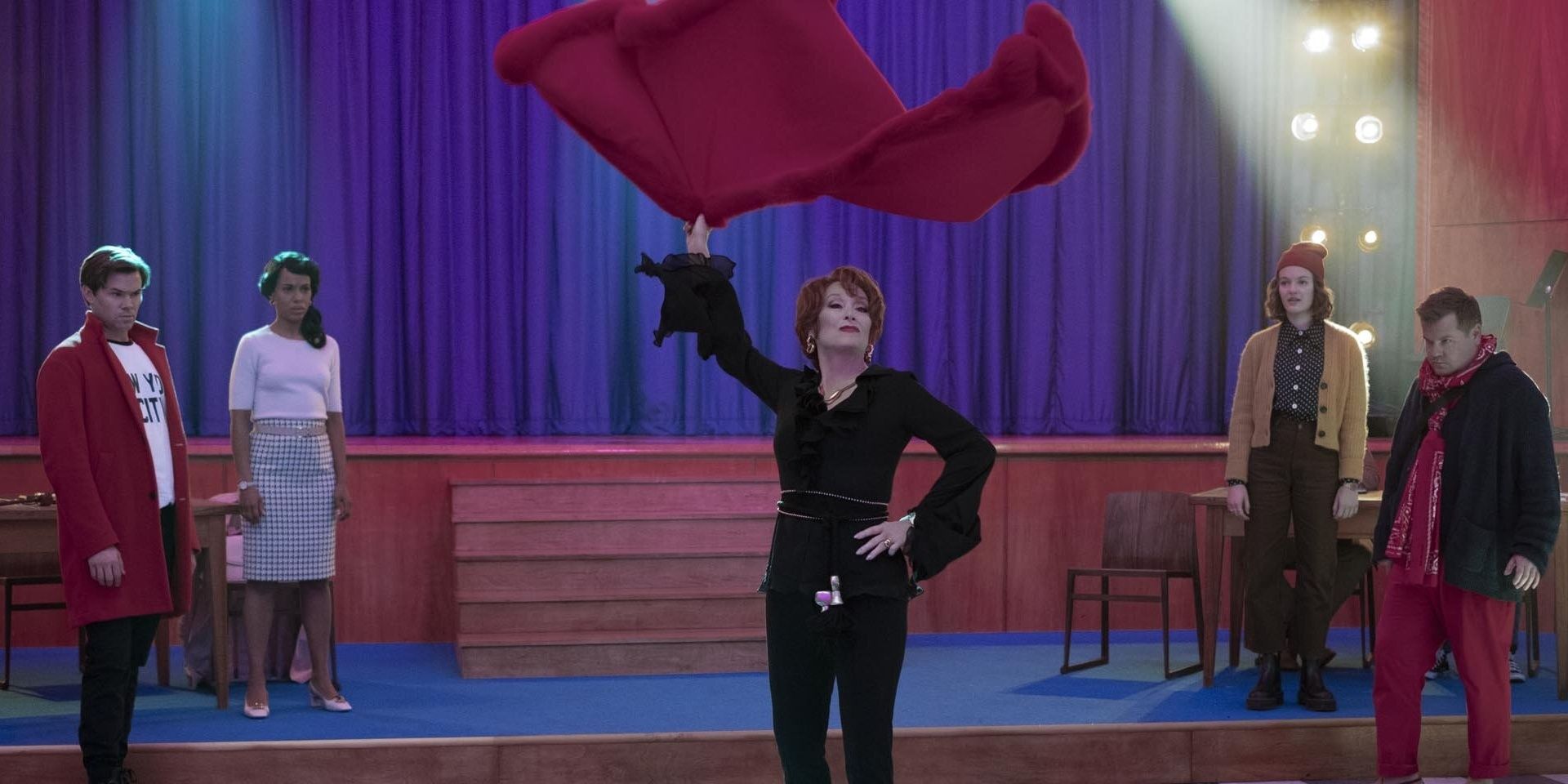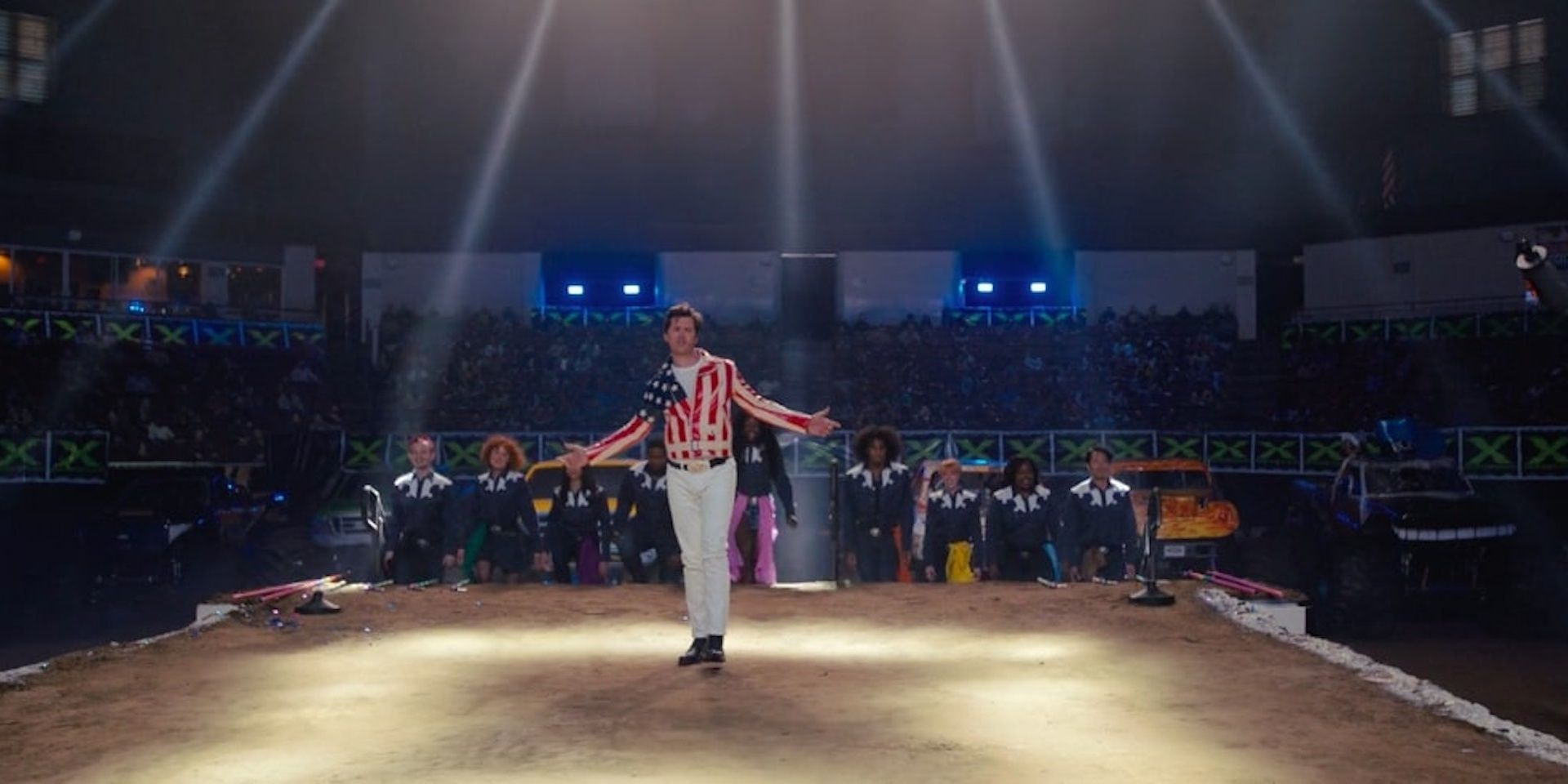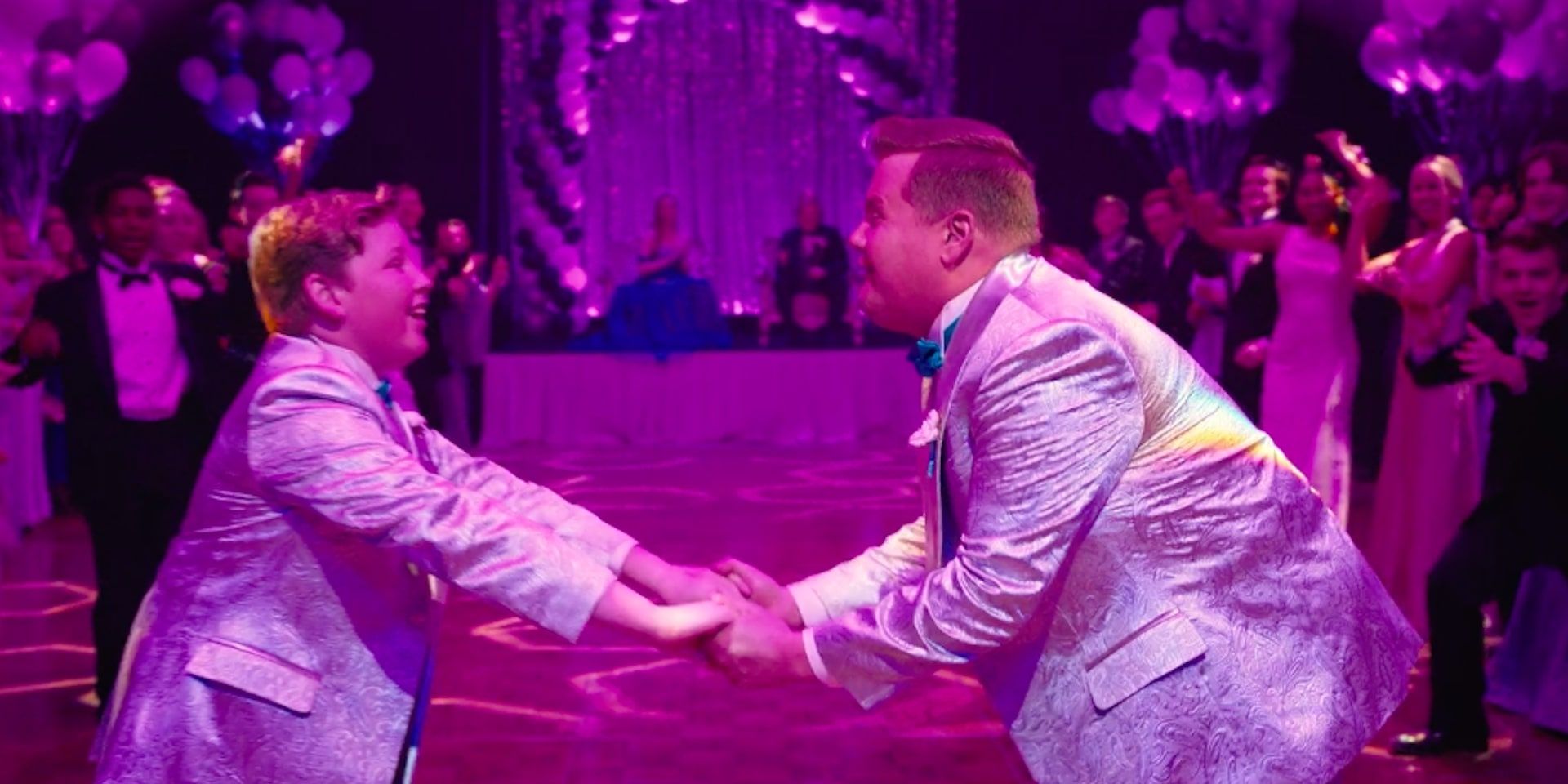The Prom is the latest Broadway musical to be adapted into a movie, and with that transition comes inevitable differences. Before the film premiered on Netflix in early December 2020, director Ryan Murphy said in an interview with The Hollywood Reporter that the adaptation would be "about 25 percent different from the play." Now that the film has been streaming on Netflix for more than a month, fans of the stage production can see what that 25 percent actually entails.
Based on the 2016 musical of the same name, The Prom tells the story of a motley crew of down-on-their-luck Broadway actors who travel to a small Indiana town to fight for a teenager who wants to go to prom with her girlfriend. Following in the tradition of such recent star-studded tuners as Les Misérables, Into the Woods, and even Cats, the film features an A-list cast including Meryl Streep, James Corden, Nicole Kidman, Andrew Rannells, Keegan-Michael Key, and Kerry Washington. Newcomer Jo Ellen Pellman plays the young, earnest high school lesbian Emma.
As Murphy contended, the movie version of the musical doesn't change much; fans of the original material are sure to be satisfied by the ultimately faithful adaptation. There are some inevitable changes in The Prom, however: some songs are trimmed, and some characters expanded. These are the biggest differences between the Broadway musical and the Netflix film.
"Wear Your Crown"
A long-standing tradition with stage-to-screen adaptations is the inclusion of a new song, typically written to nab an Oscar nomination (see: Les Misérables' "Suddenly") or even a win (see: Evita's "You Must Love Me"). Dreamgirls had "Listen," Chicago had "I Move On," and Little Shop of Horrors had "Mean Green Mother From Outer Space." The Prom is no different, eschewing the showbiz pastiche vibe of the rest of the score for the pop single "Wear Your Crown." Written by the show's composer Matthew Sklar and lyricist Chad Beguelin, in collaboration with Adam Anders and Peer Astrom, the new song plays over a fun prom-centered end credits sequence and features the guilty pleasure of a Meryl Streep rap verse.
The Prom Movie Begins Differently
In the musical, the curtain rises on the glitzy opening night of Eleanor! The Eleanor Roosevelt Story, the latest vehicle for narcissistic Broadway stars Dee Dee Allen (Streep) and Barry Glickman (Corden). Fielding questions from the press and strutting the red carpet, they extol through song their mantra of how great it is to be "Changing Lives," a mantra about to be put to practical use when they find out about the James Madison High School in Edgewater, Indiana, which has canceled its prom due to a female student wanting to attend with her girlfriend. That all still happens, but the movie version of The Prom first opens with the James Madison PTA meeting where this fateful decision takes place. Meeting Pellman's Emma before Dee Dee and Barry seems to be an attempt by Murphy to reframe the adaptation as Emma's story; regardless of its success, it introduces her right at the front of the story instead of waiting until the actors have hit the road to shake up the town.
Emma's Grandma Bea
In the musical, Emma makes a few references to the fact she lives with her grandma Bea after being kicked out of her parents' house at the age of sixteen. However, the film gives an opportunity to actually see this character and for her to bond with Barry, who confides in her how he left his own childhood home before his parents could kick him out for being gay. Sweetening the deal, Bea is played by Emmy Award winner Mary Kay Place, serving pathos (and boozy lemonade.)
Opening up
The classic struggle of all film adaptations of stage works is how to "open things up" and make the proceedings feel less stage bound. The Sound of Music sent the Von Trapp children cavorting around Salzburg, Chicago transformed the musical numbers into Roxie Hart fever dreams, and even Who's Afraid of Virginia Woolf? (admittedly a non-musical) sent Martha, George, Nick and Honey to a roadhouse just to get out of the house for a little. The Prom is no different, introducing various fantasy sequences involving Streep's Dee Dee Allen in action on Broadway and Corden's Barry Glickman dancing with his younger self at prom, and utilizing a mall for a full-on shopping montage and an Andrew Rannells-led gospel number.
A Shortened "You Happened"
One of the surprising bops in the show's score is the "prom-posal" anthem "You Happened," sung mostly by a chorus of high school boys asking their respective dates to the big night. A catchy Motown throwback accented by youthfully quirky steps by choreographer Casey Nicholaw (the original production's director), it would be hard for this tune to outstay its welcome. Alas, it's all over fairly quickly, cutting off before the big finish and leaving audiences with a "You Happened" that barely happened.
"The Acceptance Song"
Perhaps a more welcome cut, Andrew Rannells' character Trent's "Acceptance Song" about making "rainbow dreams come true" is transplanted to a monster truck rally but shaved down to mostly an opening chorus. While this unfortunately decreases Andrew Rannells' presence in the overall film, it's a good call: the culture clash of Broadway vs. Indiana highlighted in the number has already been covered five minutes prior, when Streep crashes a town meeting with the show-stopping "It's Not About Me."
Barry's Mother
The biggest, and perhaps most controversial, change in The Prom is the inclusion of a subplot where Barry comes out to his mother. A complete invention of the film, it's a sweet enough idea that also welcomely warrants the casting of British-American icon Tracy Ullman. That said, it's a plot that winds up taking substantial real estate in the film, and when that real estate is occupied by James Corden in a performance being accused of "gay face," it can make one wonder the worth of its inclusion. This isn't to say the message of a gay man of a certain age breaking an estranged relationship with his mother to celebrate his true self is unwelcome — it's just that Corden's acting, which seems to flit wholeheartedly into a stereotype, makes the whole enterprise more cringe-inducing than cathartic. It's not hard to imagine out queer actors like Titus Burgess or Nathan Lane giving a performance with infinitely more humor and humanity.

